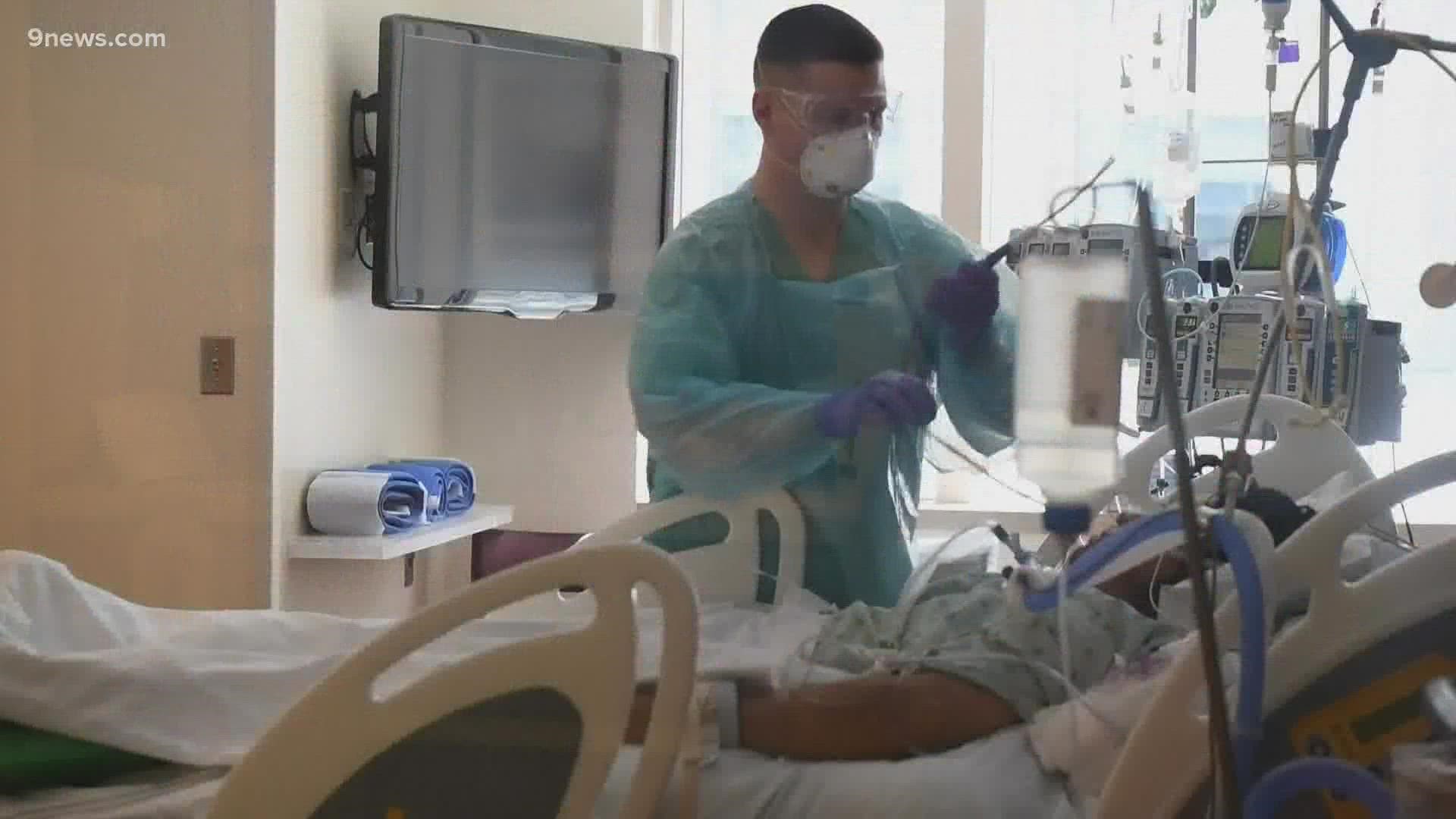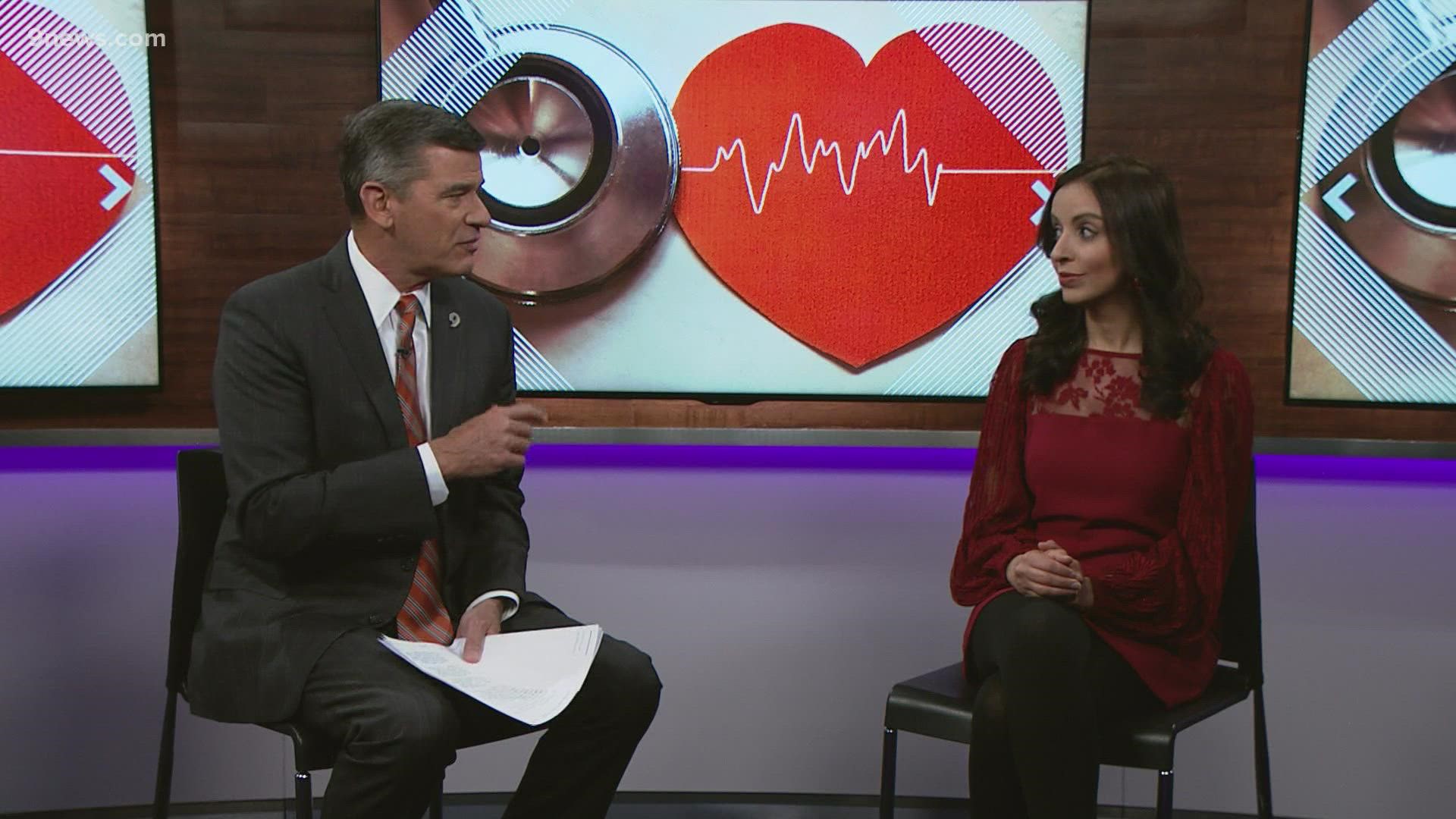DENVER — The omicron variant has skyrocketed to more than 90% of Colorado's COVID cases in just two weeks, bringing changes to the state's recommendations on what to do if you get sick.
Gov. Jared Polis and the state's chief medical officer, Dr. Eric France, held a briefing Wednesday to talk about those changes and to give advice to those who plan to attend gatherings for New Year's Eve.
"Be smart," Polis said. "It's out there, it's contagious."
For those who are fully vaccinated and boosted, the risk of severe illness of omicron is minor. Those who are not vaccinated are at a much higher risk of hospitalization, Polis said.
He said those who are young and fully vaccinated shouldn't worry too much about getting COVID.
"But be careful if you get sick after," he said.
The omicron variant has a shorter incubation time (one to three days) and a shorter period of time when an infected person is contagious than previous variants, so the state has updated its quarantine recommendations, France said.
- The Colorado Department of Public Health and Environment (CDPHE) recommends that anyone who tests positive should stay home for five days, then wear a mask after leaving quarantine.
- Those who are fully vaccinated and boosted don't have to quarantine when exposed but should wear a mask.
- Those who aren't vaccinated and boosted should quarantine for five days when exposed to COVID-19.
"This is an important change, and it makes good sense with the omicron biology," France said.
As of last week, the highly transmissible omicron variant was responsible for 91% of cases in the state, according to CDPHE. Polis said that percentage is likely higher now.
On Monday, CDPHE reported 3,191 new cases of COVID-19. The state's seven-day positivity rate was 13.97%.
Polis said 1,088 people are hospitalized with COVID.
Hospitalizations were declining and "hit bottom" on Saturday, and the numbers are now rising again, France said.
Colorado has seen a surge in demand for COVID-19 testing around Christmas and New Year's Eve, with long lines at testing sites and few, if any, at-home rapid tests available in stores.
Polis said there are 150 testing sites across the state, some of which also offer vaccinations against COVID.
The governor said that those who are sick should get a PCR test from a testing site, and that at-home rapid tests are appropriate for regular screening. He said because of high demand for free at-home tests through the state's program, tests are now being delivered in 10 or 11 days. Previously, they were getting delivered within four days.
The state is also considering opening additional sites to ensure those who need to get a PCR test can do so.
France said hospitals are preparing for more patients as omicron cases continue to rise.
"With omicron, things change very quickly," France said. "What feels calm today could be a bigger challenge in just 48 hours."
Six counties in the Denver metro area said on Tuesday that they are keeping or extending their mask mandates through the start of February. Those counties are Denver, Adams, Arapahoe, Boulder, Broomfield and Jefferson.
Denver's public health order requires face coverings in Denver for everyone age 2 and older in all public indoor spaces. Under the order, if a business or venue can verify that at least 95% of people in the facility are fully vaccinated, then face coverings aren't required.
>Video below discusses 'White coat syndrome' a sign of high blood pressure not to be ignored
SUGGESTED VIDEOS: COVID-19 Coronavirus


